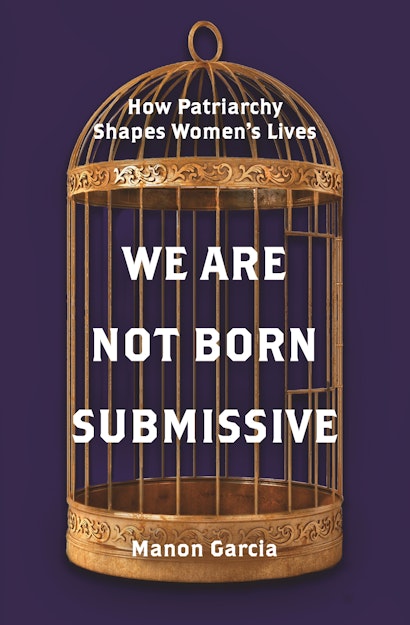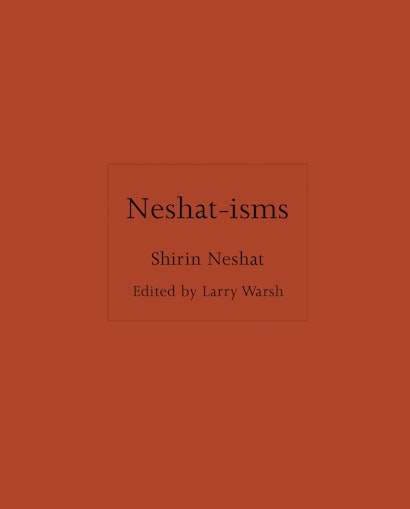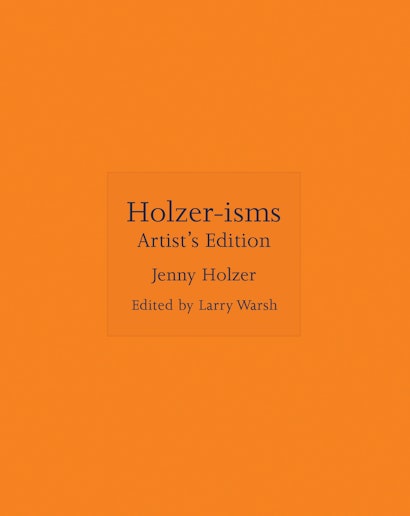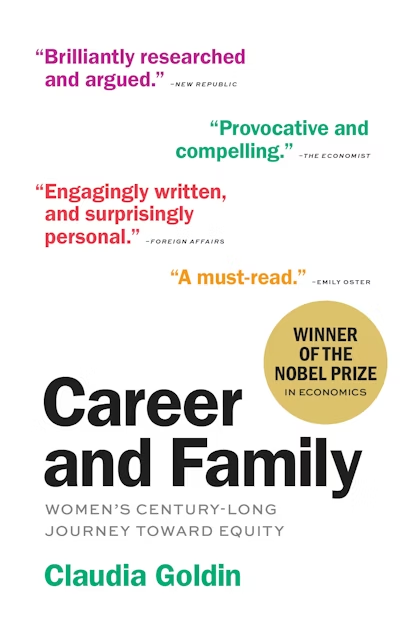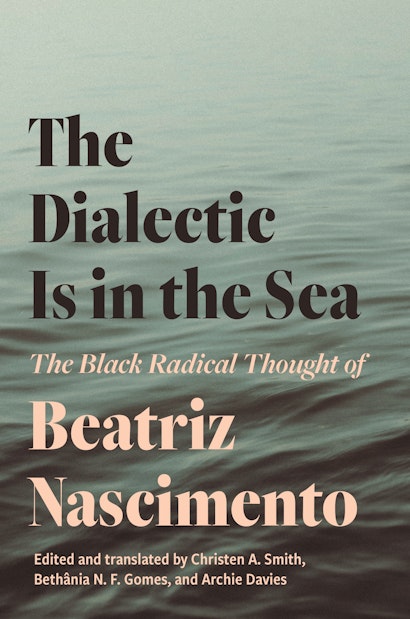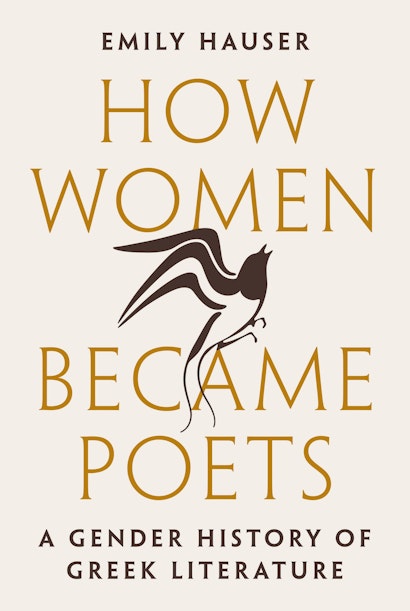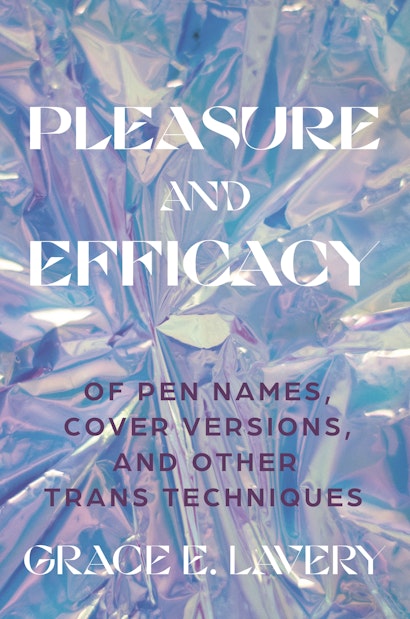Throughout Women’s History Month in March, we will highlight books by and about women who have pushed boundaries, effected change, redefined roles, or who have complicated our understanding of what it means to be powerful.
Claudia de Rham has been playing with gravity her entire life. As a diver, experimenting with her body’s buoyancy in the Indian Ocean. As a pilot, soaring over Canadian waterfalls on dark mornings before beginning her daily scientific research. As an astronaut candidate, dreaming of the experience of flying free from Earth’s pull. And as a physicist, discovering new sides to gravity’s irresistible personality by exploring the limits of Einstein’s general theory of relativity. In The Beauty of Falling, de Rham shares captivating stories about her quest to gain intimacy with gravity, to understand both its feeling and fundamental nature. Her life’s pursuit led her from a twist of fate that snatched away her dream of becoming an astronaut to an exhilarating breakthrough at the very frontiers of gravitational physics.
We Are Not Born Submissive offers the first in-depth philosophical exploration of female submission, focusing on the thinking of Simone de Beauvoir, and more recent work in feminist philosophy, epistemology, and political theory. Manon Garcia argues that to comprehend female submission, we must invert how we examine power and see it from the woman’s point of view. Historically, philosophers, psychoanalysts, and even some radical feminists have conflated femininity and submission. Garcia demonstrates that only through the lens of women’s lived experiences—their economic, social, and political situations—and how women adapt their preferences to maintain their own well-being, can we understand the ways in which gender hierarchies in society shape women’s experiences. Ultimately, she asserts that women do not actively choose submission. Rather, they consent to—and sometimes take pleasure in—what is prescribed to them through social norms within a patriarchy.
Neshat-isms is an exciting collection of quotations from award-winning Iranian-American visual artist and filmmaker Shirin Neshat. Her experiences of loss and grief as an Iranian woman living in exile are central themes of her work in photography, video, and film. She is known for her outspoken advocacy for Iranian women and human rights, and for poetic and politically charged images and narratives that raise questions about power, religion, race, and gender. Gathered from interviews, talks, and writings, these powerful and thought-provoking quotations showcase the voice of one of the most important artists of our time.
Holzer-isms: Artist’s Edition presents a selection of artist Jenny Holzer’s Truisms (1977–79)—subtly subversive declarations such as ABUSE OF POWER COMES AS NO SURPRISE—on six foldout posters designed by the artist. Important and influential works of word-art, Truisms are single-sentence statements resembling existing aphorisms, maxims, and clichés. By distilling difficult and contentious ideas into seemingly straightforward statements of fact, they examine the social construction of beliefs, mores, and truths.
A century ago, it was a given that a woman with a college degree had to choose between having a career and a family. Today, there are more female college graduates than ever before, and more women want to have a career and family, yet challenges persist at work and at home. This book traces how generations of women have responded to the problem of balancing career and family as the twentieth century experienced a sea change in gender equality, revealing why true equity for dual career couples remains frustratingly out of reach.
Beatriz Nascimento (1942–1995) was a poet, historian, artist, and political leader in Brazil’s Black movement, an innovative and creative thinker whose work offers a radical reimagining of gender, space, politics, and spirituality around the Atlantic and across the Black diaspora. Her powerful voice still resonates today, reflecting a deep commitment to political organizing, revisionist historiography, and the lived experience of Black women. The Dialectic Is in the Sea is the first English-language collection of writings by this vitally important figure in the global tradition of Black radical thought.
When Sappho sang her songs, the only word that existed to describe a poet was a male one—aoidos, or “singer-man.” The most famous woman poet of ancient Greece, whose craft was one of words, had no words with which to talk about who she was and what she did. In How Women Became Poets, Emily Hauser rewrites the story of Greek literature as one of gender, arguing that the ways the Greeks talked about their identity as poets constructed, played with, and broke down gender expectations that literature was for men alone. Bringing together recent studies in ancient authorship, gender, and performativity, Hauser offers a new history of classical literature that redefines the canon as a constant struggle to be heard through, and sometimes despite, gender.
Ever since her triumphant debut in Chaucer’s Canterbury Tales, the Wife of Bath, arguably the first ordinary and recognisably real woman in English literature, has obsessed readers—from Shakespeare to James Joyce, Voltaire to Pasolini, Dryden to Zadie Smith. Few literary characters have led such colourful lives or matched her influence or capacity for reinvention in poetry, drama, fiction, and film. In The Wife of Bath, Marion Turner tells the fascinating story of where Chaucer’s favourite character came from, how she related to real medieval women, and where her many travels have taken her since the fourteenth century, from Falstaff and Molly Bloom to #MeToo and Black Lives Matter.
Menstruation is something half the world does for a week at a time, for months and years on end, yet it remains largely misunderstood. Scientists once thought of an individual’s period as useless, and some doctors still believe it’s unsafe for a menstruating person to swim in the ocean wearing a tampon. Period counters the false theories that have long defined the study of the uterus, exposing the eugenic history of gynecology while providing an intersectional feminist perspective on menstruation science.
In Pleasure and Efficacy, Grace Lavery investigates gender transition as it has been experienced and represented in the modern period. Considering examples that range from the novels of George Eliot to the psychoanalytic practice of Sigmund Freud to marriage manuals by Marie Stopes, Lavery explores the skepticism found in such works about whether it is truly possible to change one’s sex. This ambivalence, she argues, has contributed to both antitrans oppression and the civil rights claims with which trans people have confronted it. Lavery examines what she terms “trans pragmatism”—the ways that trans people resist medicalization and pathologization to achieve pleasure and freedom. Trans pragmatism, she writes, affirms that transition works, that it is possible, and that it happens.
Long before the pandemic, Ruha Benjamin was doing groundbreaking research on race, technology, and justice, focusing on big, structural changes. But the twin plagues of COVID-19 and anti-Black police violence inspired her to rethink the importance of small, individual actions. Part memoir, part manifesto, Viral Justice is a sweeping and deeply personal exploration of how we can transform society through the choices we make every day.
The Sky Is for Everyone is an internationally diverse collection of autobiographical essays by women who broke down barriers and changed the face of modern astronomy. Virginia Trimble and David Weintraub vividly describe how, before 1900, a woman who wanted to study the stars had to have a father, brother, or husband to provide entry, and how the considerable intellectual skills of women astronomers were still not enough to enable them to pry open doors of opportunity for much of the twentieth century. After decades of difficult struggles, women are closer to equality in astronomy than ever before. Trimble and Weintraub bring together the stories of the tough and determined women who flung the doors wide open.


